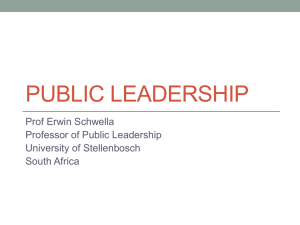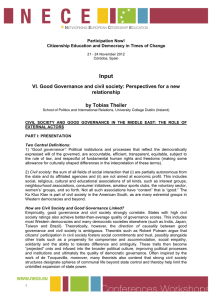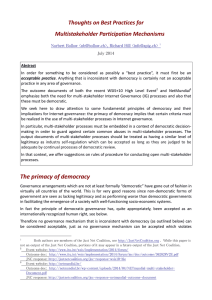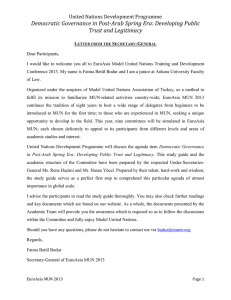View/Open
advertisement
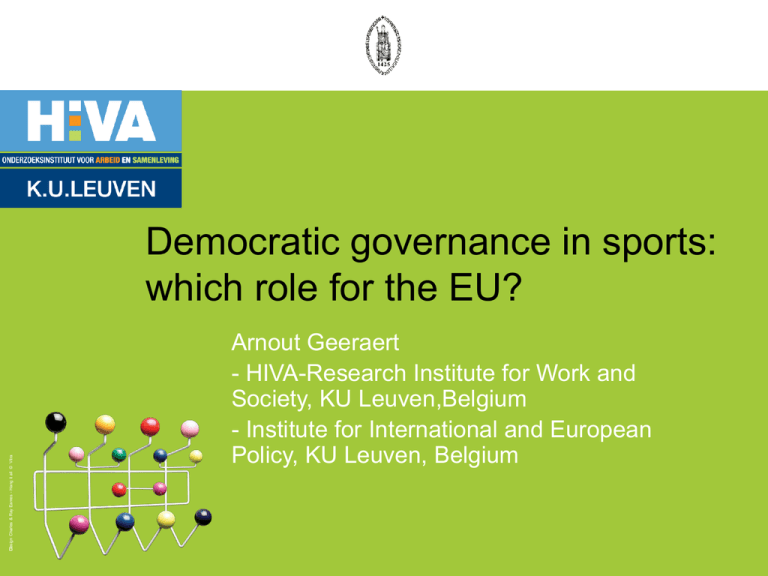
esign Charles & Ray Eames - Hang it all © Vitra D Democratic governance in sports: which role for the EU? Arnout Geeraert - HIVA-Research Institute for Work and Society, KU Leuven,Belgium - Institute for International and European Policy, KU Leuven, Belgium Which role for the EU in sport? Given the fact that… • Limited EU competence! -> Recognised autonomy -> 165 TFEU: Supporting, coordinating • Sports world eschews government interference (cf private, self-grown networks in other sectors) 2 Need for democratic control • GLOBALISATION - Regulatory overstrech of Westphalian state (Wolf, 2008) - Regulatory vacuum at international level (Scherer and Palazzo, 2011) Powerful transnational actors are not accountable (Baylis, Smith and Owens, 2008) -> MNCs, NGOs, but also… international sports organisations! 3 Need for democratic control • GLOBALISATION: implications for democratic governance -> Hirst (2000): “hierarchical organisations which are not subject to democratic control cannot be expected to have internal practices conductive to democratic manners” -> Wolf (2008): “even the most prominent functional equivalents to the checks and balances cannot be provided by private actors alone” 4 Complex environment • In society: Increased complexity (multi-layered) -> horizontal methods of governance -> networked governance (state – civil society – market) • In sport: commercialisation -> complex network with growing interdependence between business and sports world (Holt, 2007) also calls for horizontal methods of governance 5 Recent evolutions in sport governance • EU involvement + stakeholder emancipation -> evolution towards networked governance! • Potentially: democratic control PLUS efficiency! 6 SOLUTION • Second generation of governance network literature: how can we make them more democratic? • “there is no reason why GN should NOT be held democratically accountable (Papadopoulos 2007) • Desired role of public authority in the network: metagovernance through “steering” = via a series of more or less subtle and indirect forms of governance, politicians should seek to shape the free actions of the network actors in accordance with a number of pre-defined general procedural standards and substantial goals 7 What does “steering” entail? • European Commission: important role (cf role public administrators in governance networks) • EU Parliament + Council: - Elected politicians: set overall goals - Support actions from the Commission Why? Legitimise role Commission Whip in the window (compliance) • Example: good governance principles • New research agenda! 8 Contact details Arnout Geeraert Parkstraat 47 – 5300 BE 3000 LEUVEN tel. +32 (0) 498 630869 arnout.geeraert@kuleuven.be 9
